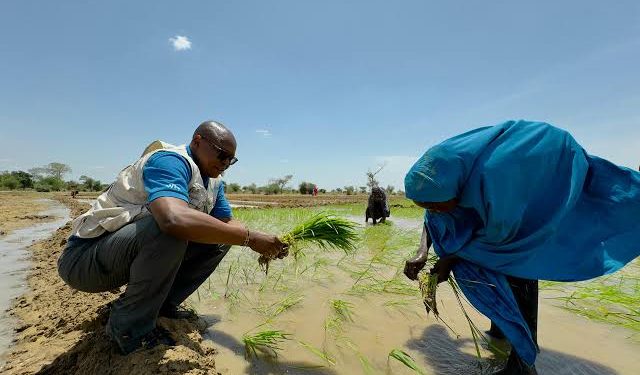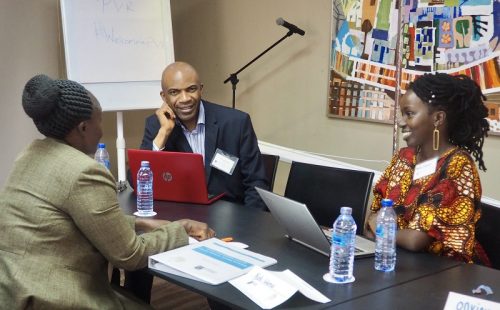The German Government, through its Federal Ministry for Economic Cooperation and Development (BMZ), in partnership with the World Food Programme (WFP), UNICEF, and Care Nigeria, has launched a new initiative to strengthen livelihoods and promote social cohesion in Yobe State. The project, focused on resilience and peacebuilding, aims to support 6,389 households and improve the economic well-being of more than 31,000 individuals in the state’s agricultural value chain.
The initiative, unveiled at a stakeholders’ inception meeting in Damaturu, is designed to restore essential services, rebuild livelihoods, and drive sustainable transformation across five wards in Jakusko Local Government Area. At the heart of the project is a plan to equip smallholder farmers with agricultural inputs, crop processing machines, and financial support to enhance their productivity and income.
According to the organisers, participating households will benefit from training and support designed to boost crop production, including the provision of seeds for maize, groundnuts, and rice during the wet farming season. Vegetable gardening and backyard farming will also be promoted to improve dietary diversity and household nutrition.
The project further integrates income-generating activities to help households expand beyond traditional farming. Beneficiaries will be organised into groups and provided with agro-processing machines to enable them to add value to their produce and generate additional revenue. These groups will also form Village Savings and Loan Associations (VSLAs), a community-based financial model that enables members — especially women — to save, access loans, and build financial resilience.
In addition to agricultural inputs and equipment, selected households will receive monthly stipends for six months to cushion immediate economic pressures. The project will also construct warehouses to support storage and supply chain efficiency, strengthening the local agricultural ecosystem.
Partners say the broader goal is not only to improve household incomes and reduce food insecurity but also to foster resilience and social cohesion in a region still grappling with the economic and social impacts of conflict.
For smallholder farmers and micro-entrepreneurs in Yobe, the intervention presents new opportunities to increase production, diversify income streams, and access community-driven financial services. By connecting rural households to value chains and empowering women through savings groups, the initiative is expected to stimulate local economies and create more inclusive growth pathways.
The World Food Programme reaffirmed its commitment to supporting the livelihoods of farmers in northeastern Nigeria, describing the project as part of ongoing efforts to strengthen food security, boost productivity, and build long-term resilience in conflict-affected communities.










